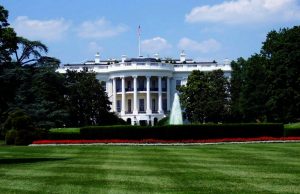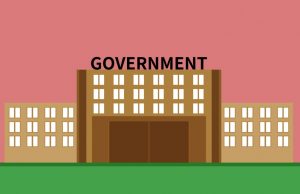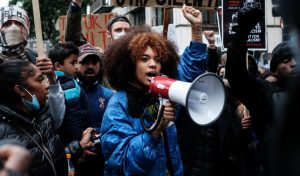Responsibilities of the government to the citizens: Aside from making rules, the primary purpose of a government, according to its history, was to protect people from conflict and to provide law and order.People learned that staying together in groups and agreeing that one (or several) in the group should have greater power than others made it simpler to protect themselves.
A government must not only defend its population from one another, but also organize to prevent attack from the outside. Government responsibilities have expanded in recent years to include the economy and public service. The responsibility of the government to the citizens is deeply seated in the purpose of the foundation of government. The government’s responsibilities to citizens include the citizens’ responsibilities to the government.
Recommended: Types of Constitution: 6 Different Types of Constitution
Responsibilities Every Government has Towards its Citizens
Here are some of the responsibilities of the government to its citizens:
1. Maintenance of law and order: It is the government’s primary responsibility to preserve law and order and keep society peaceful. The executive arm of the government maintains law and order through its agencies, which include the police, military, and paramilitary.

We live in a society where law and order must be maintained. To keep the peace, the police must enforce the laws. While the courts ensure that violators receive legal punishment,
2. Provision of security: It is the government’s responsibility to protect the lives and property of individuals and the state. The state’s existence is predicated on the protection of life and property. The protection of life and property entails that citizens are free to go around without fear of being attacked or intimidated. For the defence of the state, the government is responsible for establishing agencies such as the police, army, and state security service.

The government is responsible for providing the supplies and equipment required for environmental protection. State creation necessitates the supply of equipment and personnel to ensure the security of state property and lives. This protection is not limited to individuals who live within the country, but also encompasses citizens who live outside of it.
Also see: Three Arms of Government and Their Functions
3. Provision of social welfare services: The government’s social obligation includes promoting people’s social and cultural lives. The government must create an environment that encourages cross-cultural interaction and marriage. Governments are virtually always required to provide fundamental services to their residents, such as road construction and firefighting, but they occasionally go above and beyond.

Many governments offer food, shelter, and medical treatment to individuals in need in order to ensure their citizens’ basic well-being. The government’s social responsibilities include the provision of parks, gardens, theatres, stadiums, and cultural areas. Citizens’ training and education in social areas of life is equally critical to their well-being. In socialism or social democratic regimes, this is a core government service, although it can be contentious in more capitalist countries.
4. Protection of Human Rights: The government’s primary responsibility is to preserve basic human rights such as the right to life, liberty, and property. As previously said, when society founded a government, the notion was that some people should be given more power in order to safeguard others. Natural rights are based on the belief that everyone deserves to have these rights. People are presumed to be born with these rights, which should not be taken away from them without their consent.

When these rights are infringed upon, the government owes it to the citizens to protect them. And the government can only accomplish this if the judiciary is independent and the law is supreme.
Also see: Positive and Negative Effects of Colonialism in Africa
5. Protection from external attack: It is the government’s job to establish positive external ties with other countries in order to promote peaceful cohabitation. However, in recent times, when wars and international squabbles have occurred, governments have also had to safeguard their citizens from external threats.
Most countries’ laws and constitutions state that the government is responsible for maintaining peace inside its boundaries. External aggressors should be kept at bay as well.
6. Economic stability: The government has a responsibility to ensure that the economy is efficient, dynamic, and self-sufficient. It must utilize national resources to the country’s advantage and maintain national economic control to ensure maximum welfare for citizens and reduce wealth concentration in a few hands.
They are to minimize unemployment, control inflation, encourage economic growth, and construct monetary systems that will aid in the growth and development of the economy. These services assist citizens in developing trust in the government while also encouraging foreign investment in the country.
A civilized government has a responsibility to combat poverty and enhance the lives of its residents. To do so, the government must establish an atmosphere that encourages materially better living standards and economic progress.
Also see: Differences Between Nazism and Fascism
7. Income redistribution: To spread the benefits of prosperity, governments should ensure that the economic pie becomes larger. The government accomplishes this by taxing the wealthy and distributing the proceeds to various groups of individuals who require these services.

They are also responsible for giving financial or in-kind assistance to people or families that lack the ability or opportunity to work.
As a result, one of the functions of government is to transfer resources from the wealthy to poorer people. They also redistribute resources from the young to the disabled, the socially marginalized, and the elderly. Furthermore, wealthier governments subsidize the poor with food, housing, pensions, and healthcare.
Most of the highlighted responsibilities of the government to its citizens are usually contained in the social contract chapter of the constitution. Depending on the jurisdiction, it may be enforceable if not fulfilled.

Edeh Samuel Chukwuemeka, ACMC, is a lawyer and a certified mediator/conciliator in Nigeria. He is also a developer with knowledge in various programming languages. Samuel is determined to leverage his skills in technology, SEO, and legal practice to revolutionize the legal profession worldwide by creating web and mobile applications that simplify legal research. Sam is also passionate about educating and providing valuable information to people.
Hello ,my name is Arben Delija and to my understanding I would like to find a attorney to help me and my family have a better way of life in America the country I am born in I’m not sure if I use the word (sovereign) but feel like I would like to find out more information on how I can get answers to any bonds,money,etc and to live free like the constitution says we can and be given the affordability to do so and feel safe .There is much more I would like to talk